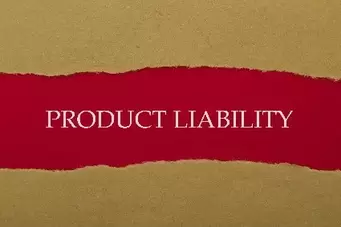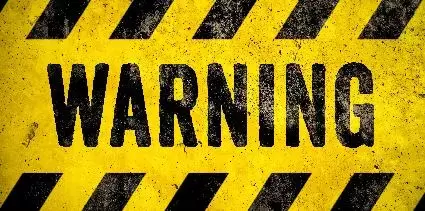 If you were injured by a defective product or a dangerous drug, call Timothy L. Miles today If you were injured by a defective product or a dangerous drug, call Timothy L. Miles today When a consumer is injured by a defective product, the injured party can seek financial compensation through a product liability lawsuit. However, product liability cases can be very complex and involve many factors -- which is why it is vital to understand your options as soon as you realize you have been hurt by someone else’s negligence. Whether you were hurt by a dangerous drug, unsafe toy, a dangerous food additive, or another type of product defect, understanding your legal rights and responsibilities can help you take action quickly and effectively. This article answers some frequently questions about product liability cases so that you are prepared if an unfortunate event arises. What Is a Product Liability Case?A products liability claim is a cause of action brought by a consumer who was injured by a product that failed to function in a reasonably safe manner. Product liability cases cover a wide range of defective product types and scenarios, but they all have one thing in common: If a manufacturer, supplier, distributor, retailer, or other party failed to follow industry standards for producing or selling a product, and that product caused an injury, that party could be held liable for damages. There are three types of product liability claims: Manufacturing defects, design defects, and marketing defects. WHAT DOES A PRODUCTS LIABILITY LAWYER DO?A products liability lawyer represents individuals who have been harmed by defective consumer goods including medical devices, dangerous drugs, toys, automobiles, home appliances, food, toxic chemicals and other goods people buy and use every day. Who Can Be Held Liable for a Defective Product?In order to hold a manufacturer or seller liable for a defective product, you must be able to demonstrate that the product was defective when it left the defendant's possession. In a product liability case, the injured party can sue one or more parties involved in the creation and distribution of the product. These parties include: Product designers/engineers, product manufacturers, product inspectors/quality assurance testers, and product suppliers. Product distributors, retailers, and other parties who are not part of the production process may also be liable for damages in certain cases. An experienced product liability lawyer like Timothy L. Miles can help you determine which parties are most responsible for the defects in your specific case. What Constitutes a Defective Product?A product is considered defective when it does not meet the reasonable standard of safety that a reasonable person would expect under the circumstances. Of course, this can vary depending on the type of product involved. For example, foods and medication have different reasonable safety standards than household appliances. A defective product can create a number of risks for an end user. In some cases, the design of the product itself is the issue -- such as a table whose legs are too short to support its weight. When Can You Pursue a Product Liability Claim?You should report your injuries to the appropriate government agency as soon as you realize you have been hurt by a defective product. Failure to report the defect could jeopardize your legal rights, as it is important to identify the underlying cause of your injuries and file the appropriate claim as quickly as possible. You should also contact a top-rated lawyer who is experienced in product liability cases such as Nashville attorney Timothy L. Miles. Product liability cases can be complicated and depend on a wide range of factors, such as the specific nature of the product defect, the extent of your injuries, and the jurisdiction of your case. The sooner you begin working with an experienced in attorney, the more likely you are to find success in your case. What Damages Can I Recover If I Prevail in A Defective Product Case?If a plaintiff proves the product was defective, they are entitled to recover damages for: past and future wage loss; past, current and future medical treatment; damages for pain, suffering and emotional distress; and, if the plaintiff can meet the standard, punitive damages (i.e., damages intended to punish the defendant and deter future similar conduct). How Do I Establish Liability in a Defective Product Case?You must prove the product was defective and that the defect caused your injuries and damages. You must show that you would not have been injured if the product had not been defective, and you must have been using the product in an intended or reasonably foreseeable way at the time. What Is a Strict Liability Claim?This theory of liability makes the manufacture and seller of the product responsible for all defective products that unreasonably threaten the personal safety of a consumer or the consumer’s property, regardless of who is at fault. WHAT IS NEGLIGENCE?Negligence means that a manufacturer may be liable for a defective consumer product if it was foreseeable that a product defect would cause injury but did not act in a reasonable manner to prevent it. WHAT IS A WARRANTY?An inherent promise that comes with a consumer product that ensures that the product is fit for its intended use. WHAT IS A FAILURE TO WARN PRODUCTS LIABILITY CLAIM? If you suffered side effects from a drug that failed to ward of the side effects, call dangerous drug lawyer Timothy L. Miles If you suffered side effects from a drug that failed to ward of the side effects, call dangerous drug lawyer Timothy L. Miles In other cases, the issue is with the instructions or warnings given with the product -- such as a failure to warn claim that plaintiffs are asserting in the various dangerous drug cases. A failure to warn claim asserts the defendant manufacturer did not supply adequate warnings or instructions on how to use the product safely, and the plaintiff was injured due to the failure to disclose the risk. Warning labels may not always be visible on a product. The manufacturer might put a warning on the box or in the instructions. A warning may not be sufficient to protect a manufacturer from liability if the user will not see it. For example, a manufacturer might have to put a warning directly on a product if people who would face the risk will not see it on the box or in the instructions. In addition, warnings should be expressed in language that the average individual understands, even if the product is complex and technical. For example, plaintiffs in the Elmiron lawsuit allege that its manufacturer Janssen Pharmaceuticals failed to warn consumers that the drug may cause a serious eye condition in those taking it, one that may result in blindness. Similarly, the Belviq lawsuit alleges the defendants made a defective drug and failed to warn physicians about its carcinogenic properties. In both the Kombiglyze XR lawsuit and the Onglyza lawsuit plaintiffs allege that the defendants failed to warn or mitigate the risk of cardiovascular injuries despite their knowledge. The Xeljanz lawsuits claim that Pfizer failed to give adequate warnings about the Xeljanz side effects, which caused preventable harm to patients who suffered blood clots in the lungs, heart attacks, strokes, breast and colon cancer, and other severe health problems. Both the Valsartan lawsuit and Tasigna lawsuit likewise allege the defendants made a defective drug and failed to warn physicians about serious Valsartan side effects and Tasigna side effects including their carcinogenic properties. Hundreds of plaintiffs have filed a Victoza cancer lawsuit and allege that Victoza, which is an incretin mimetic drug used to treat type 2 diabetes, may cause pancreatic cancer and that the manufacturer of Victoza, Novo Nordisk, failed to warn them of this risk and other Victoza side effects. Similarly, plaintiffs who took Byetta, another medicine used to treat type 2 diabetes, have filed a Byetta lawsuit alleging it too may cause pancreatic cancer and other Byetta side effects and that the manufacturers failed to warn doctors and patients of the risks. The Actemra lawsuit alleges the defendant failed to warn of serious Actemra side effects including heart, lung, or pancreatic side effects. Patients who took Meridia and subsequently developed Meridia Side Effects including a heart attack, stroke or even death allege in a Meridia lawsuit the defendants made a defective drug and failed to warn physicians about its carcinogenic properties. Finally, many plaintiffs who took Tepezza have filed a Tepezza lawsuit and allege the labels on the drug did not warn patients or doctors about serious Tepezza side effects, most notably, the potential risk for Tepezza hearing loss nor did it warn how these issues could be permanent to those taking the eye drug. In yet other cases, the product's packaging may be the cause -- such as a toy that contains lead paint. What Are the Common Elements of a Products Liability Claim?Regardless of the legal theory that the lawsuit is brought pursuant to, there are three common elements to all product liability lawsuits, The lawsuit must involve a product, the product must be found to be defective, and the product defect must be found to be the proximate cause of the injury. TIMOTHY L. MILES, ESQ.Timothy L. Miles is a nationally recognized shareholder and consumer rights attorney raised in Nashville, Tennessee. Mr. Miles was recently selected by Martindale-Hubbell® and ALM as a 2023 Top Ranked Lawyer, 2023 Top Rated Litigator. and a 2023 Elite Lawyer of the South. Mr. Miles also maintains the AV Preeminent Rating by Martindale-Hubbell®, their highest rating for both legal ability and ethics. Mr. Miles is a member of the prestigious Top 100 Civil Plaintiff Trial Lawyers: The National Trial Lawyers Association, a superb rated attorney by Avvo, a recipient of the Lifetime Achievement Award by Premier Lawyers of America (2019) and recognized as a Distinguished Lawyer, Recognizing Excellence in Securities Law, by Lawyers of Distinction (2019). Mr. Miles has published over sixty articles on various issues of the law, including class actions, whistleblower cases, products liability, and more. Comments are closed.
|
|
CONTACT
The Law Offices of Timothy L. Miles Tapestry at Brentwood Town Center 300 Centerview Dr., #247 Brentwood, TN 37027 Phone: (855) 846-6529 Email: [email protected] HOURS OF OPERATION Mon-Fri: 24/7 Sat-Sun: 24/7 |
CONNECt FacebooK
|
